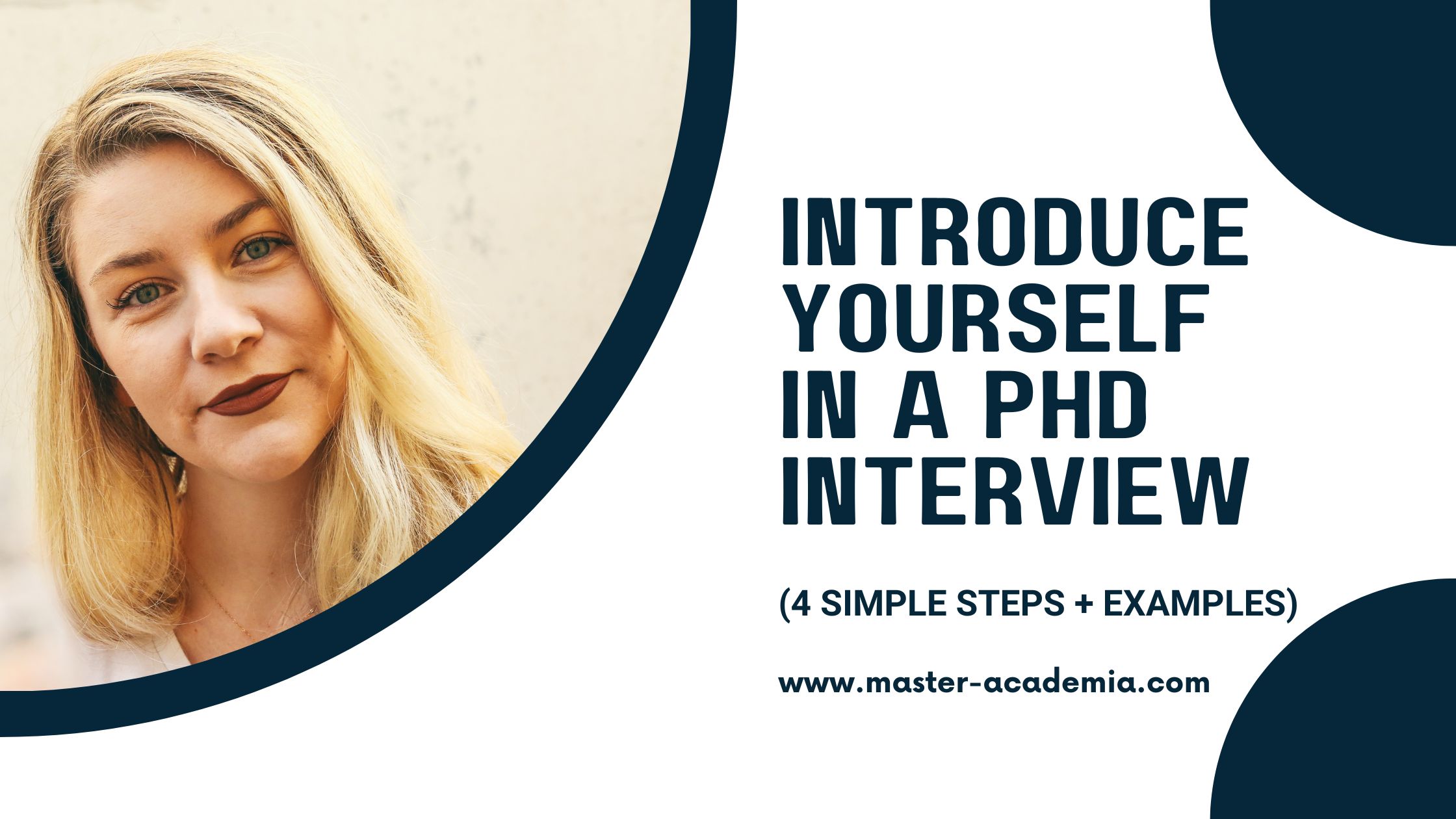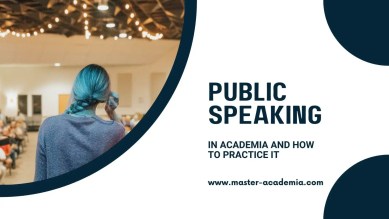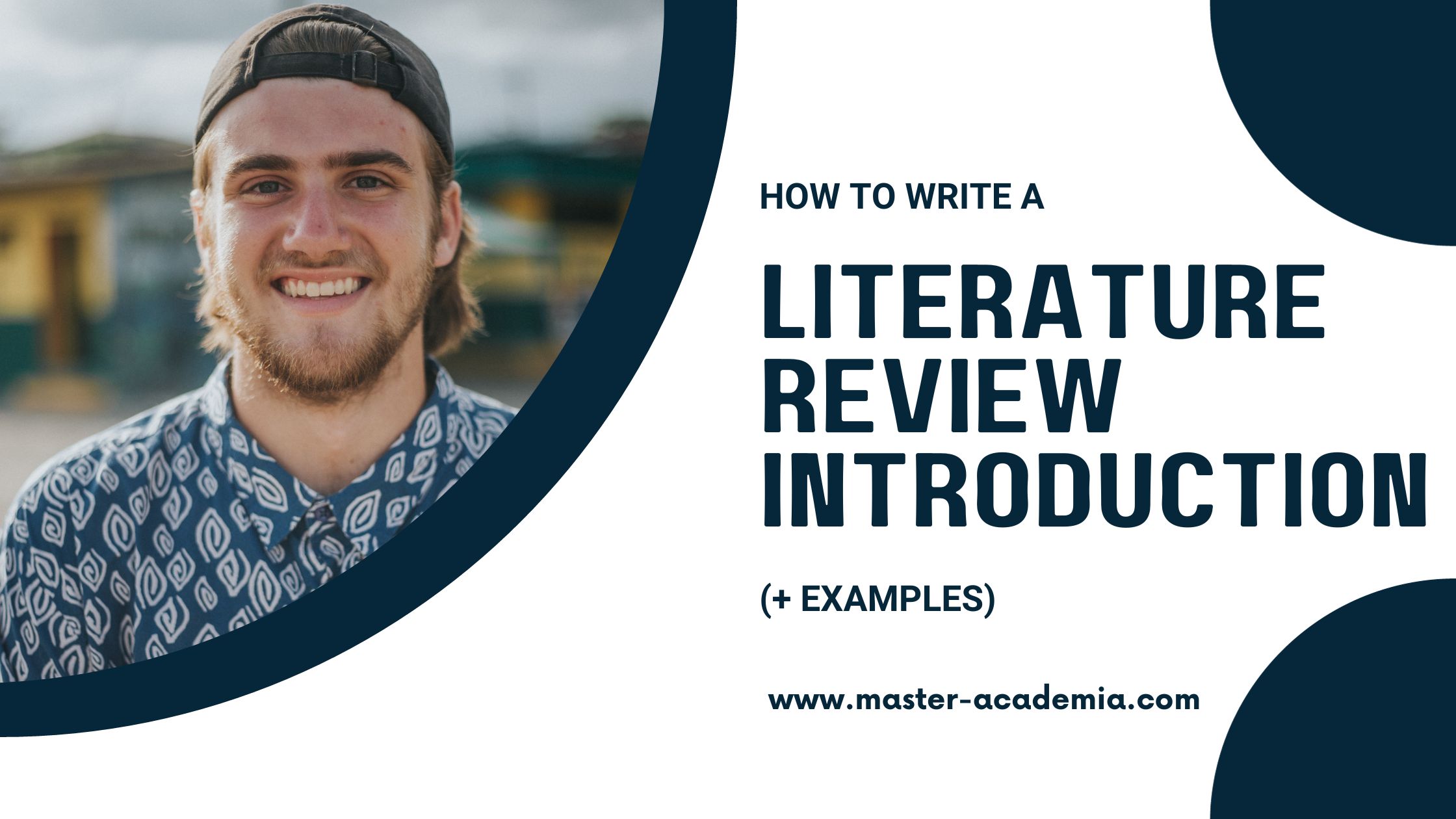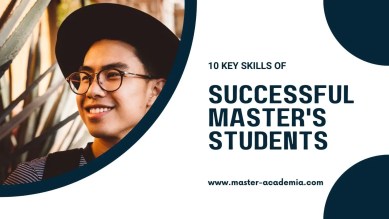
The opening of an application interview for a PhD position usually starts with short introductions of everyone participating in the conversation. Many applicants wonder how to best introduce themselves in a PhD interview. Four simple steps (including examples) help you to develop a powerful self-introduction.
Contents
Introductions in a PhD interview
Interviewing for a PhD position can be nerve-wrecking.
On the one hand, the interview is an advanced stage in the PhD application process and a reason to celebrate having come so far.
On the other hand, you may feel much more vulnerable during an interview than when sending a carefully crafted application letter.
A PhD application interview requires you to react quickly to questions, and you will never know what exactly the admissions committee will ask. Nonetheless, you can properly prepare for a PhD interview. One of the elements is preparing a powerful introduction of yourself.
A self-introduction summarises who you are and why you want the PhD position. A powerful self-introduction can set the tone for the whole interview.
If you are unprepared, there is a risk of going in all directions when it is your turn to introduce yourself. It may throw you off and make you extra nervous for the remainder of the interview.
You may also like: How to strategically prepare for a PhD application
What to do in a PhD interview introduction
Several things are pivotal in PhD interview introductions:
- Keep it short: A good self-introduction is not too long. Of course, it should be longer than simply stating “My name is … and I would like this position because I love doing research.” However, when introducing yourself, you should avoid speaking for longer than 3-4 minutes.
- Don’t take away all answers to potential questions: Some applicants try to predict all possible interview questions in advance. Then they try to answer all of them as part of their self-introduction. Don’t! There will be plenty of time in the interview to go into details. In a self-introduction, stick to a handful of key points that you want to bring across.
- Take non-verbal cues into account: Non-verbal cues include facial expressions, gestures and body language. During a self-introduction, you should make sure to come across excited about the interview instead of scared and defensive. Smile. Pause. You should also try to read the body language of the interviewer/s: Leaning forward, moving, or hand gestures are cues to wrap up your self-introduction.
What not to do in a PhD interview introduction
Several things are best to be avoided when you introduce yourself in a PhD interview:
- Don’t start babbling: Many PhD applicants start babbling when they are nervous. Babbling means they talk rapidly and incomprehensively. They may repeat information and go in all directions. The easiest way to prevent babbling is by preparing the self-introduction in advance. The four steps explained below can help you with this preparation.
- Don’t provide too detailed information: A self-introduction in a PhD interview serves one purpose: introducing yourself at the start of the interview. Nothing more and nothing less. Hence, there is no need to go into detail about every single aspect. For instance, it is enough to explain what bachelor’s degree you earned. No need to list all individual courses that you followed.
- Don’t already ask questions: It is advisable not to end your self-introduction with several questions that you have. Rest assured that there will likely be a time when the interviewers ask whether you have any questions about the PhD programme that you applied to. However, most interviews will begin with questions to the applicant and not the other way around. So be mindful of this general structure of PhD interviews, and don’t create an awkward situation by immediately bombarding your interviewer/s with your own questions.
Step 1: State your full name
The first step is easy-peasy: State your full name. Why?
Not all names can be intuitively pronounced. So help your interviewer/s by saying out loud your whole name. In that way, they will be more comfortable addressing you by name throughout the interview.
Example
| “Hello everyone, my name is Saoirse Moulant.” |
Step 2: Give a brief overview of your educational (and professional) background
Your educational background has a lot of weight in the decision of the application committee on whether you are a good match for a PhD programme or not.
Therefore, it is useful to provide a brief summary of your educational background. Those who have work experience also benefit from including it.
Example
| “I graduated from the Wharton Business School of the University of Pennsylvania with a Bachelor of Science in Economics in 2015. The bachelor’s programme was very much focused on applying economic theory to real-world problems. Therefore, I decided to continue my education with a Master of Science in Economic Theory and Policy at the Levy Economics Institute, to get a better theoretical foundation. Following my graduation in 2016, I started working in a non-profit organisation focusing on equal income distribution as a research officer.” |
Step 3: Explain why you are interested in the PhD position
The next step is to justify your interest in the PhD position. There are several powerful ways to explain why you want to do a PhD.
What is important in this next step, however, is to link your motivation to the specific PhD position that you are interviewing for. Remember to keep it relatively short!
Example
| “I enjoy my work as an applied researcher at my current job, where I provide data and knowledge for the organisation’s advocacy programme. However, I have been increasingly wondering to what extent existing economic theory captures the lived realities of people affected by unequal income distribution. When I came across the open PhD position, I knew that this would be a great opportunity to engage with this topic on a more theoretical level, and to make sense of my daily observations.” |
Step 4: Thank everyone for the opportunity to be interviewed
The final step is to thank everyone for the opportunity to be interviewed. Be gracious and polite, and express your enthusiasm for the interview. This will create a comfortable atmosphere in which questions can be freely asked and answered.
Example
| “I am grateful for the opportunity to interview for this PhD position, and I am really looking forward to your questions.” |



